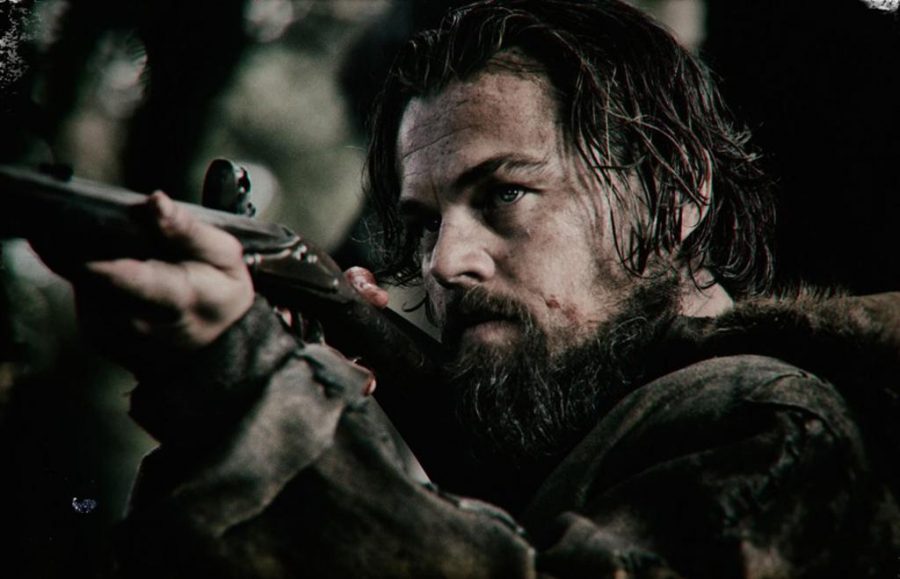In many ways, Alejandro G. Inarritu’s “The Revenant” is the opposite of his previous project, the Oscar-winning “Birdman.”
For one, no character’s career is on the verge of breakout or implosion, as Michael Keaton’s was as “Birdman’s” titular character. But despite its title, “The Revenant” is less of a dramatic return for director Inarritu or either of his leading actors Tom Hardy and Leonardo DiCaprio — two of the most respected actors working today — and more of the expected continuation of already successful careers for all parties involved.
Ten minutes in, the director’s camera chases behind his characters engaging in a long battle scene on a river bed. With long takes, he moves from person to person as arrows shoot through heads, knives plunge into chests and horses trample men on the ground. Five minutes later, Inarritu has us on a boat creeping along the Mississippi River, and we can’t help but peer over our own shoulders.
“The Revenant,” which Inarritu directed and co-wrote as an adaption of Michael Punke’s 2002 novel of the same name, is the true story of western frontiersman Hugh Glass (DiCaprio), a well regarded fur trapper viciously attacked by a bear and left for dead by his group.
Set in the 19th century Louisiana Territory — present-day South Dakota — Hugh’s fellow fur trader Fitzgerald (Hardy) initially agrees to stay with Hugh and his son, but a fearful Fitzgerald — who already resents Hugh for marrying a Native American — kills his son and ditches Hugh. Physically broken but motivated by revenge, Hugh treks through 200 miles in the wintery expanse to find the man who wronged him.
After winning three Oscars for his work on “Birdman” last year, all eyes were on Inarritu to see what he would do next, and he delivers by matching “Birdman’s” effort with exquisite determination. The shoot, which moved to southern Argentina after a mild Canadian winter, gained major controversy after complaints from the actors and crew of harsh filming conditions and a demanding schedule. The film utilizes entirely natural light, which extended the project longer than expected — but the final result is stunning.
Unlike “Birdman,” this film has little dialogue, emphasizing a gritty tone instead. Often the percussion and string-dominted score — arranged by Bryce Dessner, Carsten Nicolai and Ryuichi Sakamoto — fills in for the absent dialogue, creating a suspenseful and ominous tone throughout.
Inarritu also ditches the one-take shot he utilized in the playful “Birdman” for numerous layers of varying characters and terrain, complicating the tired revenge-survival story as a result. He introduces Native Americans, French tribes, the American fur traders and then Hugh separately, whose connection is not immediately apparent.
In the film’s third act, Inarritu connects the puzzle pieces, magnificently building toward a larger reveal.
Cinematographer Emmanuel Lubezki, who now has back-to-back Oscars for his work on “Gravity” and “Birdman,” seems like a lock to win his third award. He uses breathtakingly long takes — an Inarritu staple — in complex battle scenes that make the viewer feel they are right in the woods with the characters. Often a character’s breath fogs up the frame, or blood splatters across the corners. Lubezki goes into the water and off mountaintops’ snowy expanses. As we follow Hugh, we never lose sight of his situation’s hopelessness — the rugged landscape becomes just as important an antagonist as Fitzgerald.
For all of “The Revenant’s” differences from the sporadic yet witty “Birdman,” Inarritu has once again dragged masterful performances out of his stars. Without them, this film would have failed, but both Hardy and DiCaprio were more than up to caliber.
Hardy’s portrayal of Fitzgerald, as a man always on edge and with hair eager to escape his scalp, is always either on the verge to explode or implode. He speaks faster than he can think, his eyes bugged out and filled with fear and rage.
Hardy played his villain as someone who always appeared to be somewhere else mentally, plotting his next move. He’ll surely be a contender for Best Supporting Actor, capping off what’s been a fantastic year for the 38-year-old Briton.
But what DiCaprio did will certainly have him as a leading contender for the Academy Award. His role is almost silent, and by my count, he had fewer than 20 lines in English in the entire movie. It’s a physical performance — he’s almost animal, with his famous baby face fully covered by a beard and long hair and speaking mostly in grunts of pain.
Yet it’s still a subtle performance in many ways. He doesn’t let Hugh become a cardboard-cutout hero motivated by love and vengeance — he makes him someone full of heartbreak and pain, loss and fear. In many ways this is the first time in his career where DiCaprio, now in his 40s, has appeared to be an adult.
Even in “The Wolf of Wall Street” two years ago, he was passable as 20-something Jordan Belfort. He’s been gritty before in films like “The Departed” and “Blood Diamond,” but in those films he felt like a kid in a rough situation. Here, that’s gone. He’s every bit his age, and you’re afraid by how much sheer manliness he contains and the strength he still manages. Leave it to Inarritu to turn the boy we fell in love with in “Titanic” into a grizzled man.
But despite the transformation, nothing about Inarritu’s latest project feels like a revelation. Instead, Inarritu has solidified himself as a reliable director capable of taking both washed-up and booming actors and churning out a masterpiece.



